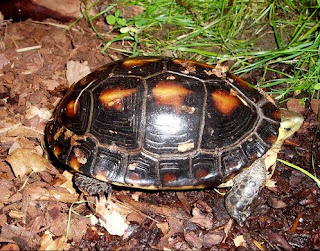Taiwan's coal power plant at Wuchi, Taichung was named by Nature magazine as the world's dirtiest power plant.
Taipei Times letter- July 30, 2012.
It’s all in the name
What one calls a terrorist another calls a liberator. It is all in the name; how those who hold power or desire power wish the masses to perceive something. The media obviously plays its part in all this.
Take the Taipei Times article “Environmentalists protest over EIA” (July 26, page 3). Environmentalists? Images of long-haired hippie types stuck in a 1960s mindset rambling on about free love and Mother Earth come to mind. And I am pretty sure that is just what some politicians, developers and corporations want you to think. “Yeah, the lunatic fringe up in arms again causing disruptions!”
The first paragraph of the article read as follows:
“Environmentalists yesterday protested against an environmental impact assessment (EIA) for an expansion project at a naphtha cracker complex that failed to include fine particles.”
You would be forgiven for thinking it was just those pesky environmentalists that have a problem with an environmental impact assessment for the fourth phase expansion project at Formosa Plastics Corp’s sixth naphtha cracker complex in Yunlin County’s Mailiao Township (麥寮). Some group of crazy green bunny-huggers whining about fine particles not being listed.
Now, let us delete “environmentalists” and give a more accurate description of those that typically are present at these protests against the expansion projects down in Mailao:
“Concerned local residents, civic groups, fishers, farmers, workers, teachers, academics, parents, lawyers, doctors, conservation and environmental groups yesterday protested against an EIA for an expansion project at a naphtha cracker complex that failed to include fine particles.”
OK, it is a bit long, but you get the point. It sounds different, doesn’t it? It changes things. We relate to these people. They are us. They do not sound so loony.
However, the Taipei Times so often boxes these regular folks and organizations as “environmentalists” or “activists” or some other “ism.” I am sure the so-called developers must smile at this subtle eroding of Joe Citizen’s image and credibility.
You see. It is not just environmentalists that are pissed off with Formosa Plastics and its toxic hell down in Mailiao. After all the pollution, fires, greed and lack of ethics, after soaring cancer rates, dirty air and smokey gray skies, people have had enough. They want to know why the Environmental Protection Agency allows this toxic nightmare to continue.
However, others would have you believe it is just some nutty environmentalists who have a problem with it.
T.W. Sousa, Yunlin County


.png)
